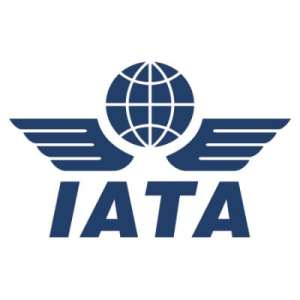The call for Governments to take attention to the aviation world came in the IATA Director General’s Report on the Air Transport Industry at the 74th IATA Annual General Meeting (AGM) and World Air Transport Summit.
The International Air Transport Association (IATA) called for governments to facilitate the growth of global connectivity by avoiding creeping re-regulation, maintaining the integrity of global standards, and addressing a capacity crisis.
“On aviation’s core mission to deliver safe, secure, accessible and sustainable connectivity, the state of our industry is strong and getting stronger. And with “normal” levels of profitability, we are spreading aviation’s benefits even more widely. But there are challenges. Smarter regulation needs to counter the trend of creeping re-regulation. Global standards must be maintained by the states that agreed with them. And we need to find efficient solutions to the looming capacity crisis,” said Alexandre de Juniac, IATA’s Director General and CEO.
Re-Regulation
The deregulation of the air transport industry that began in 1978 in the US ignited global changes that enabled the spread of air transport’s benefits. The competition saw the price of air connectivity fall making air transport much more accessible. In 1978 the average person flew once every 6.6 years. Today the average is closer to once in two years.
A creeping trend of re-regulation, however, puts the gains of deregulation at risk. Citing regulatory actions from around the world, de Juniac noted that regulatory over-reach now includes attempts to prescriptively regulate passenger compensation, seat assignments, the ticket options that can be offered to consumers and prices charged for various ancillary services.
“Regulations must add value. In assessing that, regulators must recognize the power of competition and social media to safeguard consumer interests. Governments should not distort market effectiveness with regulations that second-guess what consumers really want,” said de Juniac.
This is the spirit of IATA’s “smarter regulation” campaign which asks governments to align with global standards, take into account industry input and analyze the costs of regulation against the benefits. De Juniac noted that one of the most exciting current regulatory developments is the sweeping review of US commercial regulations with the aim of keeping only those where the benefits outweigh the costs to both travelers and the industry.
Global Standards
De Juniac called for a vigorous defense of global standards that have guided the safe and efficient development of aviation. “We must take governments to task. It is unacceptable that global standards are being ignored by the very governments that created them,” said de Juniac.
De Juniac noted several examples:
- India taxes international tickets in contravention of ICAO resolutions
- States are planning new environment taxes even as the ICAO-brokered Carbon Offsetting and Reduction Scheme for International Aviation (CORSIA) is about to commence as the global market-based measure for managing emissions.
- Nearly two decades after the Montreal Convention 1999 was agreed it is not universally ratified. Its important modernizations apply in only 130 states.
- There is not 100% compliance with Chicago Convention Annex 13 requirements for complete accident investigations. Of the approximately 1,000 accidents over the last decade only about 300 accident investigations have been concluded with published reports.
- Annex 17 of the Chicago Convention sets baseline security requirements. Yet ICAO audits reveal that only 28% of states meet them. Moreover, 37% of states fail on resolutions of security concerns.
Infrastructure
IATA urged governments to find sustainable solutions to ensure the infrastructure needed to meet growing demand for connectivity.
“We are in a capacity crisis. And we don’t see the required airport infrastructure investment to solve it. Governments struggle to build quickly. But with cash-strapped finances, many are looking to the private sector for solutions. We need more airport capacity. But be cautious. Expecting privatization to be the magic solution is a wrong assumption,” said de Juniac.
The privatization of airport infrastructure has not lived up to airline expectations. “As customers of many airports in private hands, airlines have far too many bitter experiences. Travelers also sense the problem. According to Skytrax, five of the top six traveler-preferred airports are public. Motivated by our members’ frustration, we did our own performance benchmarking. Privatized airports are definitely more expensive. But there is little difference in efficiency or investment levels compared to airports in public hands,” said de Juniac.
The results of airport privatizations run counter to the results of airline privatization which saw the cost of travel drop dramatically. Airlines do not accept that privatizing airports must lead to higher costs. And neither should consumers or voters. How can making the transport infrastructure more expensive—which means less competitive—be a legitimate public policy objective?” said de Juniac.
While IATA research did not reveal a one-size-fits-all solution to ensure sufficient, fit-for-purpose and affordable airport infrastructure, it did point towards positive experiences for consumers and airlines with variations of corporatization.
The 74th IATA AGM will consider a resolution on the privatization of airport infrastructure calling on governments to:
- Focus on the long-term economic and social benefits of an effective airport as part of the country’s critical infrastructure,
- Learn from positive experiences with corporatization, new financing models, and alternative ways of tapping private sector participation
- Make informed decisions on ownership and operating models to protect consumer interests, and
- Lock-in the benefits of competitive airport infrastructure with firm regulation.
Related
yahoo






